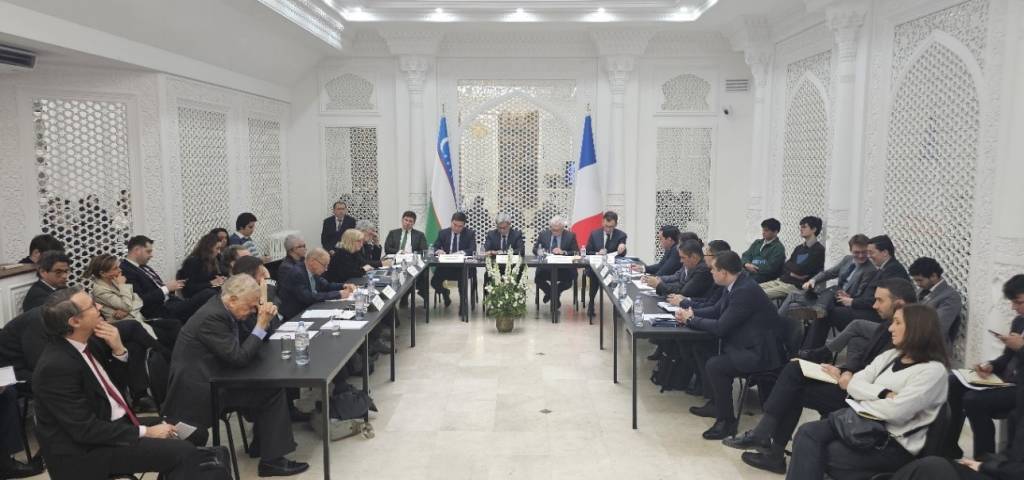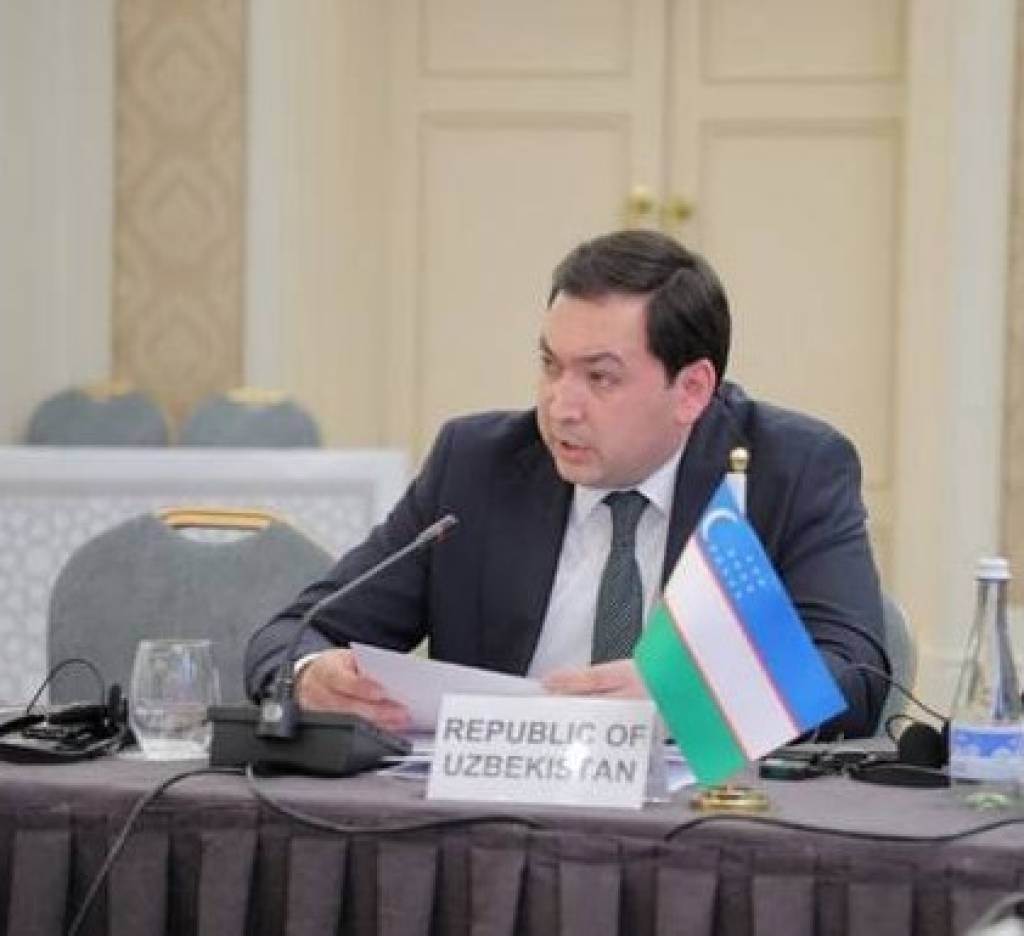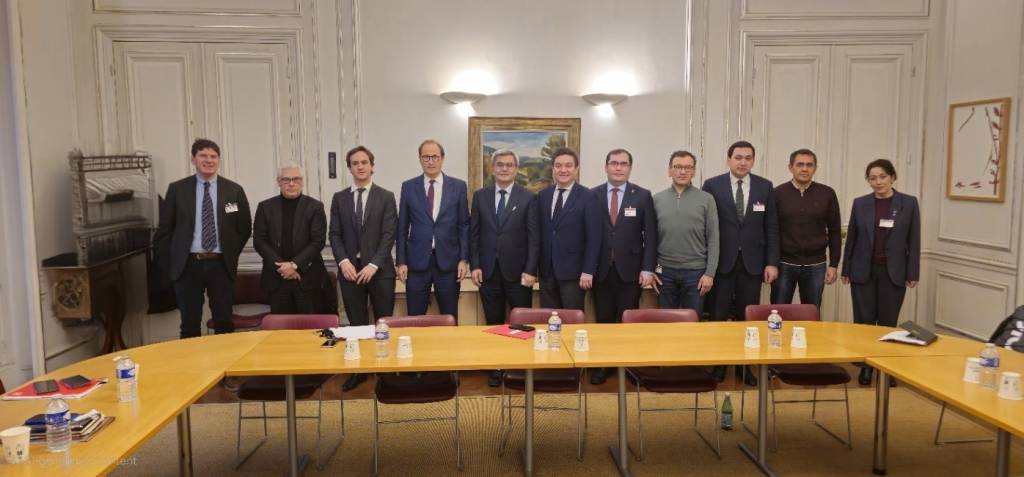
A roundtable discussion on “Current integration processes in Central Asia and expansion of dialogue between Uzbekistan and the European Union” was held in Paris on December 9.
Leading experts from France and Uzbekistan attended the event.
At the event, its participants discussed prospects for developing Uzbekistan – European relations.
The parties acknowledged that there has been a significant intensification of cooperation between Uzbekistan and the EU in recent years, which has acquired a systemic and mutually beneficial character. The volume of mutual trade between the Republic of Uzbekistan and the EU countries is growing dynamically, having increased by 11% last year and amounted to more than 5 billion euros. Large investment projects are being implemented in high-tech sectors of the economy with the participation of leading European companies.
The EU’s Generalized Scheme of Preferences Plus (GSP+) for Uzbekistan has been extended until 2027.
The French experts were informed on the political and socio-economic reforms in New Uzbekistan and Tashkent’s pragmatic foreign policy in maintaining mutually beneficial and friendly relations with neighboring countries and extra-regional strategic partners.
An exchange of views on current regional issues, particularly the provision of humanitarian aid to Afghanistan, also took place.

The ISRS Deputy Director Bakhtiyor Mustafayev made a report on the Afghan policy of the Republic of Uzbekistan. He emphasized that in ensuring sustainable development and stability in Afghanistan, it is essential to adhere to a peaceful approach and focus on the socio-economic recovery of this country. As the expert noted, history shows that the Afghan problem cannot be solved by military means.
Mr. Mustafayev emphasized that today, more than ever, a new agreed strategy of the world community is essential, not isolation, but involvement and dialogue with the current authorities of Afghanistan.
According to the UN, the Taliban were able to increase budget revenues significantly. According to the General Revenue Directorate of Afghanistan, from March 21, 2023, to March 20, 2024, the total amount of official revenue collected by the Taliban movement amounted to about $3 billion, which is 30% more than the previous financial year.
Moreover, according to the report of the UN Office on Drugs and Crime, after the general ban on opium poppy cultivation in Afghanistan, opium production has decreased by 95%.
These examples show that the Taliban movement is trying to solve the existing problems in the country. Meanwhile, the situation remains difficult: more than 20 million people need humanitarian aid, 12 million people are experiencing an acute shortage of food, and terrorist organizations are active. All this shows that further isolation of Afghanistan will contribute to an even greater deterioration of the situation in this country.
In this regard, according to the ISRS specialist, Uzbekistan has been pursuing a pragmatic policy since the first days of the Taliban’s rise to power, aimed primarily at improving the socio-economic situation of the Afghan people.
The importance of the recently opened free trade zone in the city of Termez, which borders Afghanistan, was emphasized, which serves to develop cross-border contacts. To create favorable conditions for Afghan citizens, a 15-day visa-free regime was introduced.
According to the expert, Uzbekistan is also making efforts to develop agriculture in Afghanistan. In this regard, a working commission was created between the two countries’ agriculture ministries.
Special attention was paid to Tashkent’s assistance in training qualified Afghan personnel. Since 2018, about 700 Afghan citizens, 200 of whom are girls, have studied in the specially created Educational Center in Termez in higher, secondary specialized, and vocational education.
Uzbekistan is also interested in increasing Afghanistan’s transport potential. In this regard, Tashkent is promoting the project to build the Trans-Afghan Railway Corridor, which will become an essential factor in the connectivity of the regions of Central and South Asia.

On December 10, as part of the Uzbekistan delegation’s stay in Paris, a meeting was also held with the Chairman of the Foreign Affairs Committee of the National Assembly of France, Bruno Fuchs.
During the talks, issues of developing inter-parliamentary relations were discussed, particularly activating the Friendship Group interaction between the parliaments of Uzbekistan and France. Special attention was paid to strengthening parliamentary control over the implementation of agreements reached at the highest level, exchanging experience in lawmaking, and establishing cooperation between the research structures of the two countries’ parliaments.
UzA








